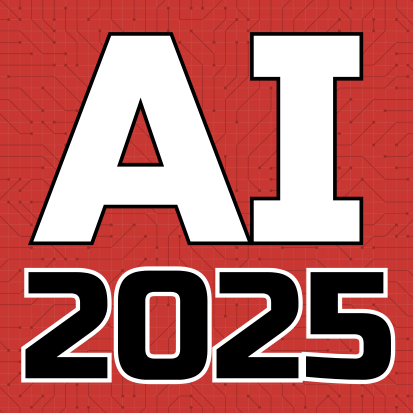How Businesses Adopt AI in 2025
by Birinder Singh, Auxiliobits
 We are becoming better as humanity. But what is making us better? Our ability to build the building blocks that can perform certain actions on their own automatically and we are evolving as a monitoring and orchestrating entity. Some of the routine and complex/heavy tasks are being delegated to machines. And these machines can be physical heavy machines or software machines like AI Agents.
We are becoming better as humanity. But what is making us better? Our ability to build the building blocks that can perform certain actions on their own automatically and we are evolving as a monitoring and orchestrating entity. Some of the routine and complex/heavy tasks are being delegated to machines. And these machines can be physical heavy machines or software machines like AI Agents.
We have been using AI in the past but why is the world abuzz about the new AI revolution now? One of the most important reasons is that the pace at which we are finding AI in our daily use is lightning. We are being swarmed by AI Agents for all sorts of different tasks and processes and we need time to even think about using them in our daily lives. And if we do not do so, someone else will definitely have an edge over efficiency.
What does the future look like with the advent of AI and Agents? Where is AI going? How can humans work side by side with AI? Is AI going to replace humanity in terms of their work?
Evolution of humans is a case study, Humans have evolved their cognitive capabilities and so does AI. The whole idea of a smart AI Agent is to generate a set of actions based on the speech or text input (prompt) and that action is smart enough to perform business processes. And how does this change the way businesses operate?
There are a few uses cases that are obvious:
AI Agents in Customer Service
Although we started helping customer service executives with automating mundane tasks before and while on call through automation technologies like RPA (Robotic Process Automation), Intelligent Automation bots, we never thought of having an AI Agent interact independently with a customer with all the knowledge base readily available. For instance either on chat or on call, an AI Agent can initiate and drive the conversations in natural language until it has to hand it over to an actual human agent.
Personalising the conversations based on the caller identity and being available 24x7 is another trait to look out for. Agents can be a huge productivity boost in call centers. For example, McKinsey reports that agents helped a large call center resolve 14% more issues each hour.
We have been using AI in the past but why is the world abuzz about the new AI revolution now? One of the most important reasons is that the pace at which we are finding AI in our daily use is lightning.
AI Agents in Healthcare
We can automate a lot of processes in healthcare using simple prompts to AI Agents that can be available within a healthcare entity, with their personalized and localized data awareness. For instance handling the Revenue Cycle processes and then generating insights by just asking certain questions to an AI Agent have been revolutionary. Not to mention the patient facing agents that can interact, assess, take notes and integrate with a lot of EMRs. An AI Agent sits on disparate systems, huge data with different sources and different applications to provide a seamless experience to all healthcare stakeholders.
AI Agents for Software Development
Tech and software companies are utilizing AI Agents to ease their development and research efforts by just delegating tasks and asking agents to find best practices and optimal solutions to their problems. We have seen efficiency increase and development time cut by more than 40% in substantial cases. Now building simple to complex applications are easier and may also not require putting in time for debugging the code. Even testing your applications is easier as agents develop test cases and even execute them based on the built in knowledge base. This results in cutting development costs substantially and reducing the turnaround time for releasing new versions of software.
AI Agents for Finance and Accounting
Ever wondered about commanding an AI Agent to execute Accounts Payable (AP) on a certain day in the month. The Agent performs all sorts of actions like reading emails for invoices, extracting and reading data from invoices, matching 2-way or 3-way, interacting with the internal CRM and ERP for reconciliations, going to a certain person in the company for approvals and finally allowing them to release payment automatically. And then reporting based on analysis required. All this happens with a single command. We have seen more than 90% accuracy and the remaining 10% comes back for human intervention. Processes like AP/AR, Procure-to-Pay, Order-to-Cash, Treasury and so on can be automated using Agents or Agentic Process Automation.
A study from OpenAI estimates that AI could take on half the work of almost 20% of all workers. McKinsey estimates that, by 2030, 30% of all work hours will be performed by machines, not people.
So it is time to reskill, lean-in to the change that is happening and pretty faster than expected and try to envision how AI can disrupt your business. Embracing change and finding ways to adopt AI in your business functions is something that should be on top of minds of the stakeholders. I hope it is not too late for everyone. Otherwise the distance to catch up will increase substantially
For any discussion feel free to get in touch with me on my LinkedIn and we can schedule a call to discuss what happens if you do not adopt AI in 2025 or at least have a roadmap.